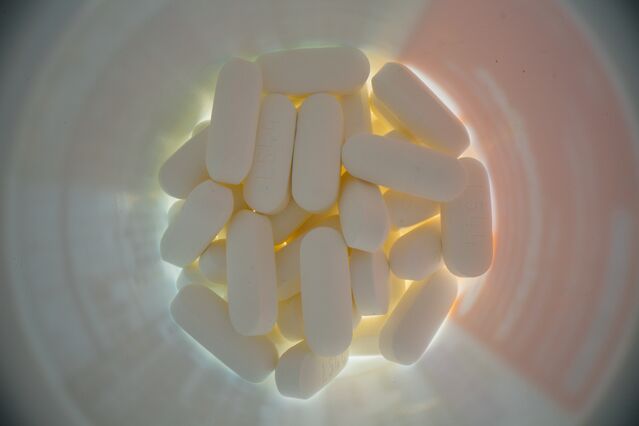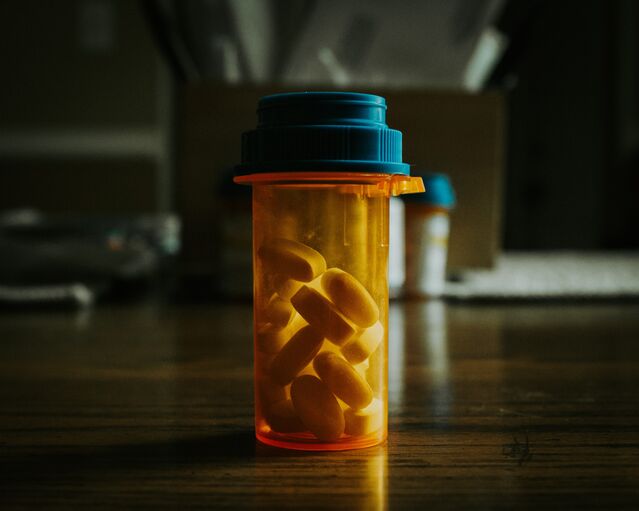Eating Disorders
Drug Treatments for Binge Eating Disorder
Medication can be an effective binge eating disorder treatment for some people.
Posted March 31, 2022 Reviewed by Vanessa Lancaster
Key points
- Medication has shown effectiveness in reducing binge eating disorder symptoms.
- While only one drug has been approved to treat binge eating disorder, off-label drugs can also be prescribed.
- No binge eating disorder treatment has shown superiority in reducing symptoms.
- Because binge eating disorder is complex, treatment effectiveness will vary between people.
While no two binge eating disorder (BED) cases are the same, diagnoses typically include compulsive and frequent binge eating episodes without compensatory behaviors (e.g., purging). To be diagnosed with BED, these binges must occur at least once a week for three months.
In clinical terms, a food binge has been defined as eating an abnormally large amount of food during a discrete period of time (e.g., one hour).10

What “abnormally large” means, however, is vague.
To better define this, we can use two different approaches. The first is objective and requires a trained clinician to quantify how much food is eaten during a typical binge. The second is subjective and takes the person eating's perception of their food intake into account.1
Regardless of which approach is used, an individual's perception of their eating behavior is always important to consider. People with BED often report feeling a loss of control while eating. How they feel after the food binge (e.g., self-loathing, depression, or guilt), any embarrassment they have about their eating behavior, how quickly they eat during the food binge, and if they keep eating when they're uncomfortably full or aren’t hungry are all important indicators of BED.
An individual’s culture, biology, and physical exertion also need to be considered when diagnosing BED.
Treating Binge Eating Disorder
The most common BED treatments are therapy, medication, or a combination of both.
A recent review comparing the effectiveness of different BED treatments showed that no specific treatment (e.g., medication or therapy) for BED can be considered superior.8 And, because no two cases of BED are the same, treatment effectiveness will vary across individuals. Consequently, it is up to the patient and their medical team to find a treatment plan that works for the patient.
Because certain medications are increasingly showing effectiveness in treating BED (i.e., reducing binge episodes and relapse), the use of medication to treat BED has also increased.3
Lisdexamfetamine Dimesylate (LDX)
Currently, the only FDA-approved drug to treat BED in the U.S. is lisdexamfetamine dimesylate (e.g., Vynase), or LDX. LDX is a long-lasting d-amphetamine prodrug that is better known for its effectiveness in treating ADHD. Nonetheless, LDX is now also the leading pharmaceutical for reducing binge eating.

In a clinical trial with 267 women (mean age 38), it was found that taking LDX over four weeks reduced binge episodes from over four per week to less than one per week.4 The same trial found that those who took LDX over six months had a relapse rate of only 3.7 percent compared to those who took a placebo (32.1 percent). Worth noting, though, is that most participants in this trial were white women.
How Does LDX Work and Why Does It Reduce Binge Eating?
LDX is inactive outside of the body. The magic only happens after it is absorbed by the digestive tract and converted into an amphetamine by the blood. After its transformation, LDX has the job of increasing the brain's norepinephrine and dopamine, two chemicals involved in regulating stress (norepinephrine) and eating motivation (dopamine). It encourages brain cells (e.g., neurons) to release more dopamine and norepinephrine while preventing them from cleaning up the chemical excess.5
It's unclear why increasing these brain chemicals can reduce binge eating, but it might be because people who binge eat have atypical levels of norepinephrine6 and dopamine.7
While LDX has demonstrated to be a safe treatment for some people, its conversion into an amphetamine makes it a Schedule II controlled medication with abuse potential if taken at incorrect dosages.3 Therefore, while the abuse potential for LDX is low if taken at correct doses,3 doctors should always consider a patient’s history of stimulant substance use, suicide attempts, mania, or cardiac disease before prescribing it.8
Off-Label Pharmaceuticals for BED Treatment
For individuals who aren’t eligible for LDX treatment, doctors might prescribe an off-label drug. While the term off-label drug sounds sketchy, it’s a common and relatively safe practice in medicine.

Prescribing an off-label drug means that a doctor recommends an FDA-approved drug to a patient, but that drug hasn't been approved to treat the illness they're suffering from.
An example of off-label drug use is prescribing a prostate cancer patient a chemotherapy that has only been approved to treat breast cancer.
Off-label prescribing isn’t done randomly. Doctors rely on research that has demonstrated that an off-label drug effectively improves another illness's symptoms (e.g., binge eating).
The benefits of off-label drug treatments include:
- They are cheaper to produce and quicker distribution than a new drug.
- They have a more established safe use and knowledge of side effects,
The off-label drugs most prescribed for BED treatment are antidepressants.
Despite not being FDA approved to treat BED, a recent research review found that second-generation antidepressants (SGAs) (e.g., selective serotonin reuptake inhibitors; SSRIs) and LDX have similar patient outcomes: both can significantly reduce binge eating frequency and binge eating-related obsessions and compulsions.8 LDX, however, was found to be more effective than SGAs in completely eliminating binge eating episodes.
These findings illustrate that antidepressants, though not FDA approved to treat BED, might be an effective (and possibly safer) treatment alternative for individuals who don’t qualify for LDX treatment.8
Why Do Antidepressants Reduce Binge Eating?
Why antidepressants reduce binge eating for some individuals is unclear, but it could be that low levels of serotonin contribute to binge eating.9 One of serotonin's jobs is to make us less motivated to eat, and people who binge eat have shown to have low serotonin levels.11
These low serotonin levels could be caused by a genetic mutation that increases the number of serotonin transporters in the brain. Serotonin transporters are like little vacuums that clean up extra brain chemicals. If someone has too many "serotonin vacuums" in their brain, this could lead to low serotonin levels and, subsequently, increased eating motivation.

Some antidepressants work by preventing serotonin transporters from vacuuming up too much serotonin, leaving more of it in the brain.
Conclusions
When starting medication, patients must be fully informed by their doctors about why the medication is being prescribed, its use (e.g., dosage; time to take it), and any potential side effects. This information allows patients to ask questions, advocate for themselves, and achieve the best possible outcome.
However, many patients are not fully educated by medical staff about the medications they’re prescribed.2 This can lead to poor communication between patients and medical staff, less effective treatment outcomes, and poor health consequences.
Because eating disorders are complex illnesses, medications won't work for everyone. But, recovery is always possible for each individual with the right treatment.
References
1)Brownstone, L., et al. (2021). Lived experiences of subjective binge eating: An inductive thematic analysis. International Journal of Eating Disorders, 54, 2192-2205.
2)Kerzman, H., et al. (2005). What do discharged patients know about their medication? Patient Education and Counseling, 56, 276-282.
3)Bello, N., & Yeomans, B. (2018). Safety of pharmacotherapy options for bulimia nervosa and binge eating disorder. Expert Opinion on Drug Safety, 17, 17-23.
4)Hudson, J., et al. (2017). Efficacy of Lisdexamfetamine in adults with moderate to severe binge-eating disorder. JAMA Psychiatry, 74, 903-910.
5)Wishart, D., et al. (2017). Lisdexamfetamine. DrugBankOnline. Retrieved from: https://go.drugbank.com/drugs/DB01255
6)Pruccoli, J., et al. (2021). The role of the noradrenergic system in eating disorders: A systematic review. International Journal of Molecular Sciences, 22.
7)Bello, N., & Hajnal, A. (2010). Pharmacology Biochemistry & Behavior, 97, 25-33.
8)Ward, K., & Citrome, L. (2017). Lisdexamfetamine: Chemistry, pharmacodynamics, pharmacokinetics, and clinical efficacy, safety, and tolerability in the treatment of binge eating disorder. Expert Opinion on Drug Metabolism & Toxicology, 14.
9)Monteleone, P., et al. (2005). Association of a functional serotonin transporter gene polymorphism with binge eating disorder. American Journal of Medical Genetics, 141B, 7-9.
10)Berkman, N., et al. (2015). Management and outcomes of binge eating disorder. Comparative Effectiveness Reviews, 160.
11)Steiger, H. (2004). Eating disorders and the serotonin connection: State, trait and developmental effects. Journal of Psychiatry & Neuroscience, 29, 20-29.




